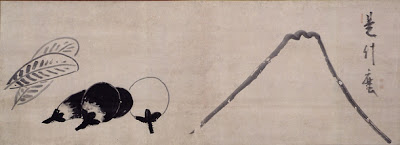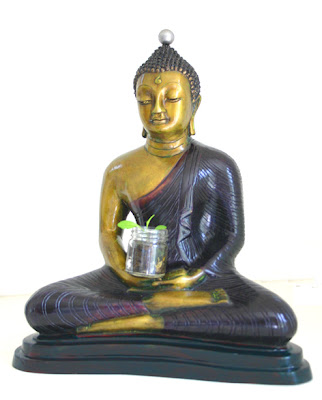Neuroaesthetics can be thought of as a part of a more general study of art and aesthetics as a biological phenomenon. I will follow other proponents of this view (such as Tecumseh Fitch) in calling this broader approach bioaesthetics. The overall goal of bioaesthetics is to answer the three basic biological questions – what?, how?, why? – in regard to aesthetic behaviour in humans: what is art and aesthetics?; how does art and aesthetics spring from the brain?; and why did this cognitive ability evolve in humans? Neuroaesthetics is predominantly concerned with question number 2. In the list that follows below I will also mention a number of books that discuss the other two questions.
martin skov's piece makes for good reading, and is relevant to the thought train here. please take the time to read the link!
but pirsig's thoughts on quality and art also merit more thinking. i'm still reading zen and the art of motorcycle maintenance and its views are surprisingly recognizable. in fact pirsigs defines art as a high-quality endeavor. (quality comes before rational thought, quality is zen-like, being the source of everything we experience, and more relevant remarks i would like to cite here but it really is better to read the book. still, the passage coming before some of these conclusions is a must:)
[zen and the art of motorcycle maintenance, end of part ii:]
Quality...you know what it is, yet you don't know what it is. But that's self-contradictory. But some things are better than others, that is, they have more quality. But when you try to say what the quality is, apart from the things that have it, it all goes poof! There's nothing to talk about. But if you can't say what Quality is, how do you know what it is, or how do you know that it even exists? If no one knows what it is, then for all practical purposes it doesn't exist at all. But for all practical purposes it really does exist. What else are the grades based on? Why else would people pay fortunes for some things and throw others in the trash pile? Obviously some things are better than others, but what's the "betterness"?...So round and round you go, spinning mental wheels and nowhere finding anyplace to get traction. What the hell is Quality? What is it?
i've been finding some traction -i believe- in the juxtaposition of generalized-pagerank quality vs. inner-compass quality.
[i also believe that many people who pay a fortune for certain art works do so more out of gpr-motivation then out of inner compass motivation. i believe many art `experts' wouldn't dare rely on their inner compass, waiting instead for enough gpr-buzz to base their valuations on. its a rembrandt, therefore it must be a wonderful painting!]
but pirsig's approach yields a more fundamental result: motorcycle maintenance can be art also. this at least goes a good way in explaining the difficulty for modern art to be sharply defined.

hakuin ekaku, mount fuji and eggplants

frank waaldijk & unknown artistbuddha, enlightenment, nature, 2006

No comments:
Post a Comment